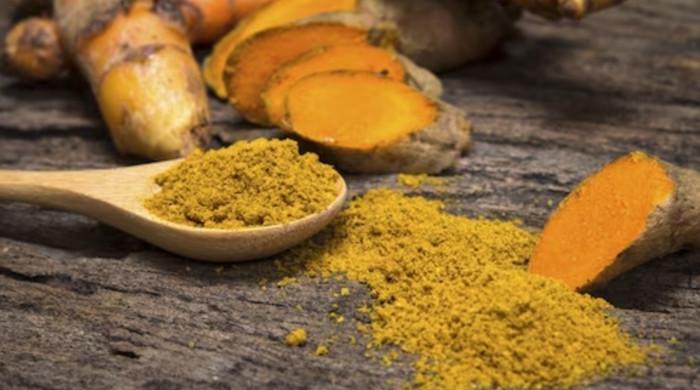Turmeric has the potential to treat indigestion, as per a new study published in medical journal BMZ conducted by surveying 150 people suffering from dyspepsia (indigestion).
Omeprazole is a commonly prescribed medication used to reduce stomach acid and treat certain heart and esophagus conditions, as explained by the Mayo Clinic.
The study assessed the participants’ symptoms, which include stomach pain, bloating, nausea, or an early sense of fullness, using the Severity of Dyspepsia Assessment at days 28 and 56 of treatment. Surprisingly, the study found no significant differences in symptoms between the groups taking the drug, turmeric, or the combination of the two.
Dr Krit Pongpirul, the lead study author from Chulalongkorn University in Bangkok, suggested, “In addition to its anti-inflammatory and antioxidant properties, curcumin/turmeric could be an option for treating dyspepsia with comparable efficacy to omeprazole.” Turmeric has a long history of use in Southeast Asia for alleviating stomach discomfort and addressing inflammatory conditions.
In the United States, it has primarily been used as a dietary supplement for its anti-inflammatory and antioxidant properties, particularly in managing osteoarthritis and irritable bowel syndrome.
This clinical trial is the first to directly compare curcumin/turmeric to omeprazole in treating dyspepsia.
While the study indicates the potential benefits of turmeric, Dr. Yuying Luo, a gastroenterologist at the Icahn School of Medicine in New York City, raised some questions. She noted that the scale used to measure symptoms and the frequency of symptom assessments might require further investigation.
Dr Luo advised caution and recommended consulting a doctor before increasing turmeric intake, as there have been instances of curcumin-related liver injury. It’s crucial to ensure that turmeric doesn’t interact negatively with other medications, especially anticoagulants or antiplatelet drugs.
However, Dr Pongpirul emphasised that curcumin and turmeric are generally safe when consumed in typical food amounts. Turmeric spices typically contain about 3% curcumin.
In conclusion, while the study offers promising insights, further research is needed to fully endorse turmeric as a treatment. Consulting with a healthcare professional is advisable, and individuals experimenting with alternative treatments should allow sufficient time to assess their impact.
“Curcumin is not going away,” Dr Luo remarked, highlighting the ongoing research exploring its potential in addressing various inflammatory conditions.

